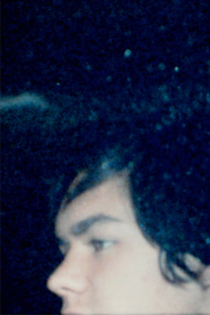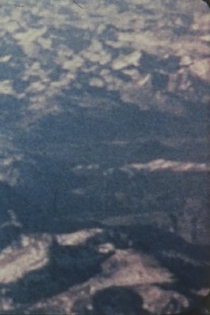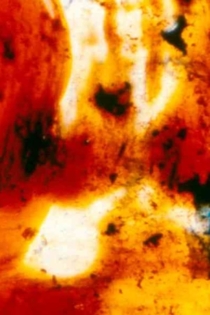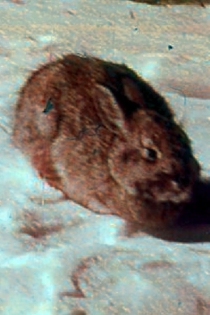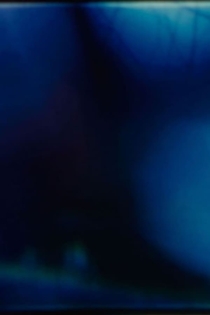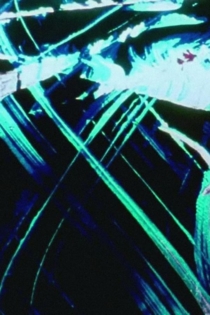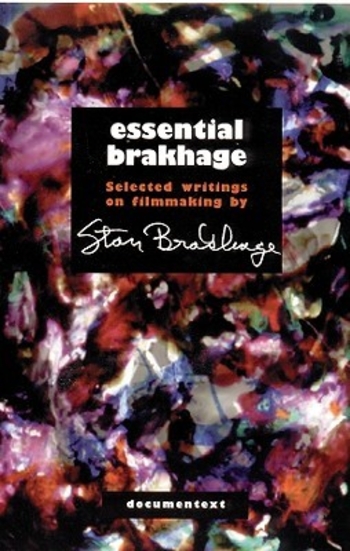
Stan Brakhage
1933 - 2003His work can be divided into distinct periods. His first short films explored the properties and possibilities of light. In many of his experimental ventures, Brakhage has forgone traditional cinematography in favor of working directly with the film stock itself. He has occasionally painted, inked, scratched and dyed images onto it; he has also tried pasting organic objects on the film. His most famous example is the 1963 short Mothlight in which he glued moth wings onto the stock. Some of his early films were based on his most intimate experiences that included making love to his new bride--depicted on negative film--in Wedlock House: An Intercourse (1959), and an attempt to bring his dead dog back to life with a camera in Sirius Remembered (1959). During the 1960s, Brakhage's iconoclastic views were celebrated for their poetry, but during the '70s, his focus changed to social issues and he alienated many supporters with such disturbing film series as the "Pittsburgh documents" in which he presented many gruesome views of inner city life with films such as Act of Seeing with One's Own Eyes (1971) which was shot in a morgue. He also continued with autobiographical material with the "Sincerity/Duplicity series. During the 1980s, Brakhage's focus again changed--this time he became intrigued with creating truly "abstract" films such as Arabics (1982) which consists of brilliant bursts of colored light which he claims, represent "envisioned music." In addition to filmmaking, Brakhage also wrote books about films and filmmaking and also served as a teacher.
Arabic Numeral Series 9
Stan Brakhage
“With some exceptions, the Arabics take the idea of the void as their ground. That is, the light we do see almost always seems to be set against darkness, or occasionally against white, these momentary flickers that materialize tenuously out of emptiness. But the darkness is not ‘night,’ or even simply some more abstract absence of light, but a more profound vacuum: it represents a world stripped of all the coordinates of the known, an unmeasurable absence. […] These lushly sensual, pleasurable-to-view films are also terrifying: their unpredictability, continually enacting new dramas of surprise, alternatively swamps the viewer in light and leaves him adrift in darkness.”
Arabic Numeral Series 9
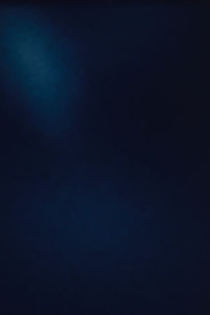
Spring Cycle
Stan Brakhage
This is a hand-painted, step-printed (with a variety of effects) film which begins with rock-like earth-toned shapes in darkness, followed by increasingly lighter pastel-colored mini-boulder forms to the right and left of the frame mimicking a whitish vertical tunneling (giving the illusion the viewer is moving upward, finally). Then there are garishly colored crystals (primarily green and red) seeming to "bloom" (as if minerals were crystallizing into flowers). Suddenly it is as if tubular phosphoressences (mostly purple, blue and green) are undulating in a dark field. Flashes of white and rhythmic blanks of pastel colors punctuate these transformations which soon become plant-like - beseeming stalks of marsh grass under water, interrupted by whirling garish crystal flowers. Several times, in these passages, the film goes to these blanks of pastel tones. Finally the film ends on a series of these blank tones shifting among blues and blue-greens exploding into white.
Spring Cycle

Arabic Numeral Series 1
Stan Brakhage
"With some exceptions, the Arabics take the idea of the void as their ground. That is, the light we do see almost always seems to be set against darkness, or occasionally against white, these momentary flickers that materialize tenuously out of emptiness. But the darkness is not 'night,' or even simply some more abstract absence of light, but a more profound vacuum: it represents a world stripped of all the coordinates of the known, an unmeasurable absence. [...] These lushly sensual, pleasurable-to-view films are also terrifying: their unpredictability, continually enacting new dramas of surprise, alternatively swamps the viewer in light and leaves him adrift in darkness. "
Arabic Numeral Series 1
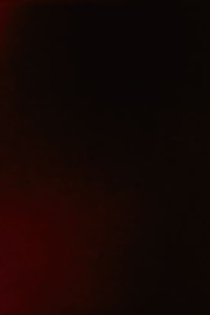
As I Was Moving Ahead Occasionally I Saw Brief Glimpses of Beauty
Jonas Mekas
Jonas Mekas, Stan Brakhage
A compilation of over 30 years of private home movie footage shot by Lithuanian-American avant-garde director Jonas Mekas, assembled by Mekas "purely by chance", without concern for chronological order.
As I Was Moving Ahead Occasionally I Saw Brief Glimpses of Beauty
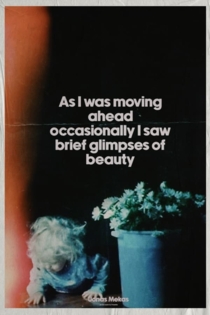
Interpolations I-V
Stan Brakhage
"The full 35-millimeter frame allows for more detail and diversity than Brakhage's customary narrower gauges. In the first section, multicolored blobs contrast with fuzzy photographed lights; in the third, flickering specks become hundreds of tiny rods and later cracks in paint. Rhythmic complexity has long been a characteristic of Brakhage's work, but the series takes polyphony to new heights by creating different movements in different portions of the frame; there's a sense of shapes being generated and reabsorbed in a cosmic vision of eternal change." -- Fred Camper, Chicago Reader
Interpolations I-V

Passage Through: A Ritual
Stan Brakhage
“[Passage Through] required the most exacting editing process ever; and in the course of that work it occurred to me that I’d originally made 'The Riddle of Lumen' hoping someone would make an ‘answering’ film and entertain my visual riddle in the manner of the riddling poets of yore. I most expected Hollis Frampton (because of 'Zorns Lemma') to pick up the challenge; but he never did. In some sense I think composer Corner has – and now we have this dance of riddles as music and film combine to make ‘passage,’ in every sense of the word, further possible.” –S.B.
Passage Through: A Ritual
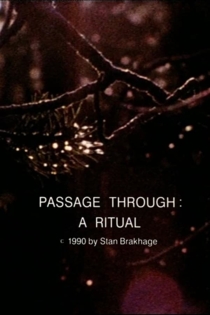
City Streaming
Stan Brakhage
This is a film made in Toronto, in memoriam, so to speak - a memory piece, a "piecing-together" of the experience of living there. The consciousness of the maker comes to sharply focused visual music - not to arrive at snapshots, as such, but rather to "sing" the city as remembered from daily living...complementary, then, to an earlier film, "Unconscious London Strata."
City Streaming
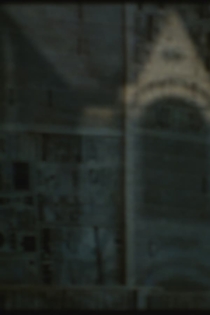
Confession
Stan Brakhage
"Firstly, I revealed in salutary confession the secret filth of my misdeed, which had long been festering in stagnant silence; and I made it my custom to confess often, and thus to display the wounds of my blinded soul..." (Petrarch, 1352, in a letter to his brother). I wish to avoid any "classical" misunderstandings of the above quote by stating clearly here that any sacrifice of love is, yes, "filth" or at the very least "misdeed." An academic reading of Petrarch tends to bias thought that there are kinds of love which might be wrong: I do not believe this. (SB)
Confession
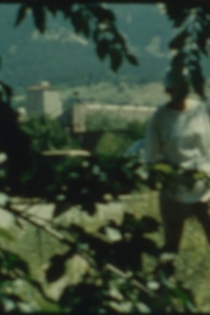
Arabic Numeral Series 13
Stan Brakhage
“With some exceptions, the Arabics take the idea of the void as their ground. That is, the light we do see almost always seems to be set against darkness, or occasionally against white, these momentary flickers that materialize tenuously out of emptiness. But the darkness is not ‘night,’ or even simply some more abstract absence of light, but a more profound vacuum: it represents a world stripped of all the coordinates of the known, an unmeasurable absence. […] These lushly sensual, pleasurable-to-view films are also terrifying: their unpredictability, continually enacting new dramas of surprise, alternatively swamps the viewer in light and leaves him adrift in darkness.”
Arabic Numeral Series 13
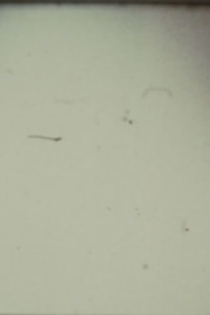
Arabic Numeral Series 15
Stan Brakhage
“With some exceptions, the Arabics take the idea of the void as their ground. That is, the light we do see almost always seems to be set against darkness, or occasionally against white, these momentary flickers that materialize tenuously out of emptiness. But the darkness is not ‘night,’ or even simply some more abstract absence of light, but a more profound vacuum: it represents a world stripped of all the coordinates of the known, an unmeasurable absence. […] These lushly sensual, pleasurable-to-view films are also terrifying: their unpredictability, continually enacting new dramas of surprise, alternatively swamps the viewer in light and leaves him adrift in darkness.”
Arabic Numeral Series 15
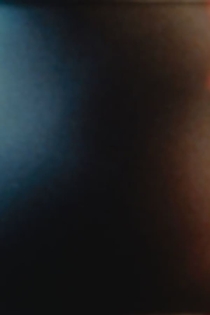
Tortured Dust
Stan Brakhage
Stan Brakhage, Jane Brakhage
The culmination of a series of autobiographical films that Brakhage made about his family (collectively known as The Book of Family), Tortured Dust was shot as the filmmaker's children from his first marriage were beginning to leave the house, and edited during Brakhage and his first wife Jane's impending separation. The first half concentrates on Brakhage's teenage sons as they move around the cabin that has been their home for almost 20 years, and the second half turns towards the filmmaker's three daughters.
Tortured Dust
